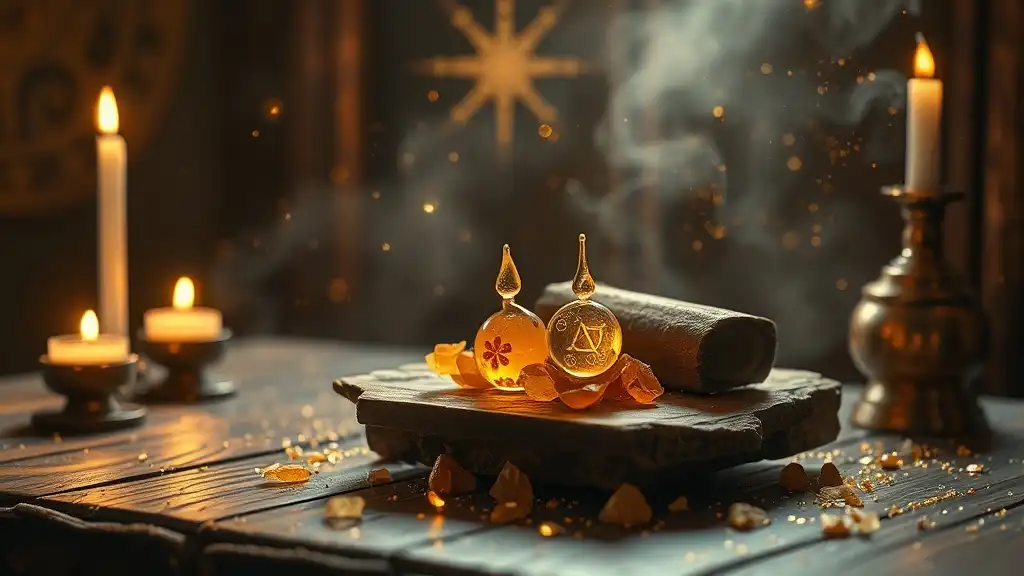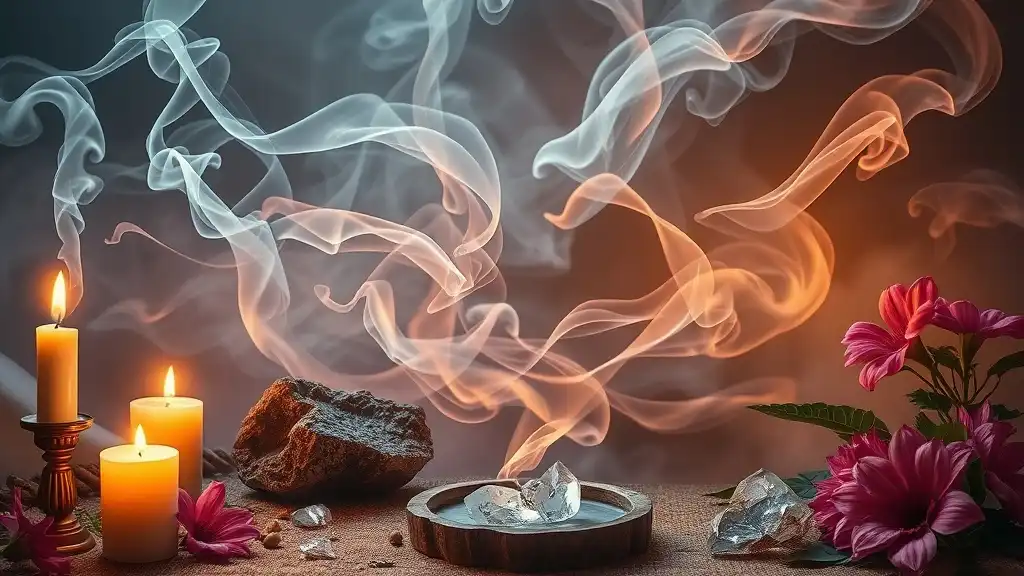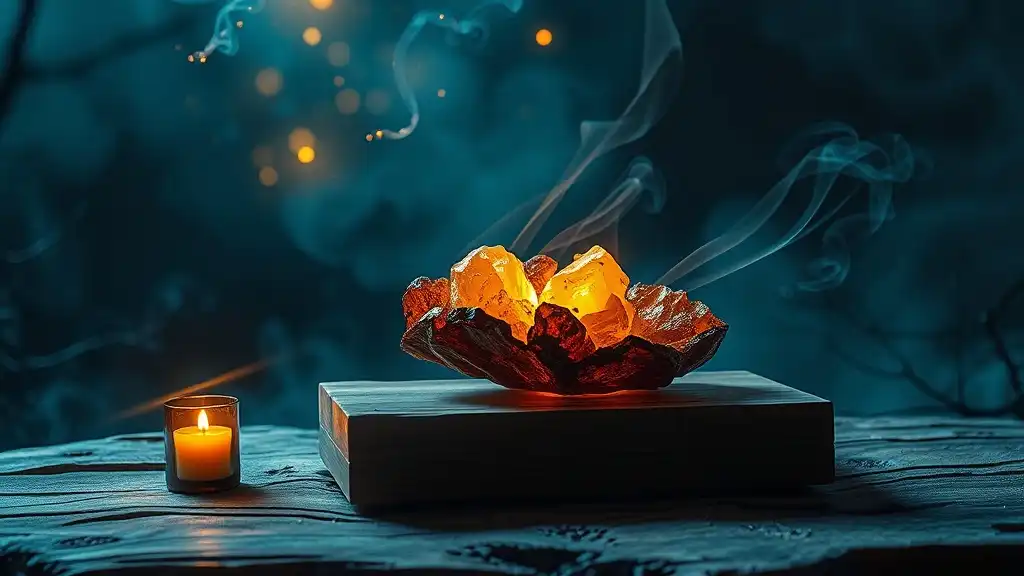Frankincense is more than just a resin; it is a deep well of history, spirituality, and healing. For centuries, people across various cultures have regarded frankincense as a sacred substance, using it in rituals, medicine, and spiritual practices. As we explore its profound significance, we come to appreciate its multifaceted roles in enhancing our spiritual journeys.
The Historical Significance of Frankincense
Ancient Civilizations and Their Use of Frankincense
Frankincense holds an esteemed place in the traditions of ancient civilizations. In Egypt, it was often used in mummification processes and sacred rituals, believed to honor the gods and promote the deceased's journey into the afterlife. Egyptians regarded frankincense as a gift from the gods, typically reserved for the pharaohs and high priests, showcasing its importance in their spiritual practices.
In ancient Rome and Greece, frankincense was ground into powder and burned as incense during ceremonial occasions. It was often associated with purification, representing the connection between earth and the divine. The resin's sweet smoke would rise to the heavens, symbolizing prayers ascending to the gods, reinforcing the spiritual bond shared between humanity and the divine.
Frankincense in Religious Texts
Frankincense has deep roots in many religious texts, most notably in the Bible. It is one of the gifts presented to baby Jesus by the Magi, symbolizing divinity and the sacred. Moreover, various religious practices incorporate frankincense into their rituals, illuminating its significance through centuries of worship.
Across cultures, it is also cited in the teachings of Buddhism, Hinduism, and other spiritual paths, representing purification, enlightenment, and the elevation of consciousness. In these texts, frankincense signifies more than mere ritual use; it embodies the essence of transcendence and spiritual awakening.

The Spiritual Properties of Frankincense
Aromatic Qualities and Their Spiritual Effects
The enchanting aroma of frankincense has a transformative effect on the mind and spirit. When used during meditation, it fosters tranquility and focus, allowing practitioners to delve deeper into their spiritual practices. The scent itself has a calming property, enhancing awareness and creating a sacred atmosphere conducive to introspection.
Many spiritual practitioners incorporate frankincense in their meditative practices to help connect with higher states of consciousness. Its aroma not only soothes the mind but also heightens spiritual receptivity, making it an invaluable tool for those seeking spiritual guidance or enlightenment.
Energetic Attributes
Frankincense is also connected to the heart chakra, which symbolizes love, compassion, and emotional balance. The use of frankincense can aid in unblocking emotional barriers, allowing individuals to experience a richer, more fulfilling connection with themselves and others. By enabling emotional release, frankincense encourages self-acceptance and deeper compassion.
Additionally, frankincense is known for its powerful grounding properties. It acts as a spiritual shield, protecting users from negative energies and preventing emotional turmoil. This quality makes frankincense a vital partner for those navigating challenging spiritual paths.

Frankincense in Meditation and Ritual Practices
Incorporating Frankincense in Meditation
Using frankincense during meditation can significantly enhance the experience. Burning frankincense resin or using an essential oil diffuser can create an enveloping space of tranquility, fostering a deeper connection to the present moment. It is recommended to focus on one’s breath while inhaling the warm, earthy scent, allowing it to instill a sense of peace and clarity.
For those interested in a more active approach, massaging a few drops of frankincense oil onto pulse points can further intensify the meditative experience. This practice not only brings physiological benefits but also promotes an aura of calm, helping to quiet the mind and open the heart.
Ritual and Ceremony Uses
Frankincense has long been a staple in rituals and ceremonies aimed at cleansing spaces and energies. Its smoke is believed to clear negative energies, transforming environments into sanctuaries of peace. In modern spiritual practices, burning frankincense can help create a sacred atmosphere for rituals, enhancing intentions and prayers.
In ceremonies, frankincense embodies purification and transformation, often used to mark significant life events such as weddings or births. This timeless practice fosters a sense of reverence and connection to the divine during moments of great importance.

Frankincense and Healing
Physical and Emotional Healing
The healing properties of frankincense extend beyond the spiritual realm. Traditionally, it has been utilized for its anti-inflammatory and restorative capabilities. While many still advocate for its physical healing benefits, its emotional healing properties are equally significant. Frankincense can alleviate anxiety, promote relaxation, and foster emotional resilience, making it popular for those navigating stress or emotional upheaval.
Incorporating frankincense into your wellness routine can be a powerful antidote to the emotional toll of modern life. Its ability to promote tranquility enhances clarity of thought and emotional balance, encouraging individuals to navigate life’s challenges with grace and strength.
Connection to Mind-Body-Spirit
The synergy of mind, body, and spirit is integral to holistic healing, and frankincense serves as a bridge among these aspects. By using frankincense, individuals can embark on a journey toward holistic wellness, bringing awareness to the interconnectedness of their physical and spiritual selves. In doing so, spiritual insights often surface, revealing deeper truths about oneself and one’s purpose.
Through practices like yoga, prayer, and meditation infused with frankincense, individuals can achieve a holistic alignment, embracing their full selves while fostering inner peace.

How to Use Frankincense Today
Different Forms of Frankincense
In today’s world, frankincense is available in various forms, including essential oils, incense sticks, or raw resin. Each form has its unique benefits, allowing individuals to choose what resonates most with their practices. For instance, essential oils can be easily incorporated into daily life, while incense provides a ceremonial element that enhances spiritual experiences.
DIY Uses of Frankincense
Those interested in a personal touch can create their own frankincense blends tailored to their preferences. Mixing frankincense with other essential oils, such as lavender or sandalwood, can offer unique aromatic qualities suited for different purposes, whether it be relaxation, focus, or spiritual exploration. Incorporating frankincense into bath rituals, skin care products, or personal talismans can also enhance its positive effects in everyday life.

Conclusion
Incorporating frankincense into your spiritual journey opens doors to a rich tapestry of history, meaning, and healing. Its powerful presence has touched countless lives, serving as a bridge between the earthly and the divine. As you explore the spiritual significance of frankincense, allow its timeless essence to guide you toward deeper understanding and connection with yourself and the universe.

Further Resources
For those interested in diving deeper, consider exploring books, articles, and online communities dedicated to frankincense and its spiritual applications. Connecting with like-minded individuals can provide support and encouragement as you embark on your frankincense journey, enriching your spiritual practice with shared knowledge and experiences.



















